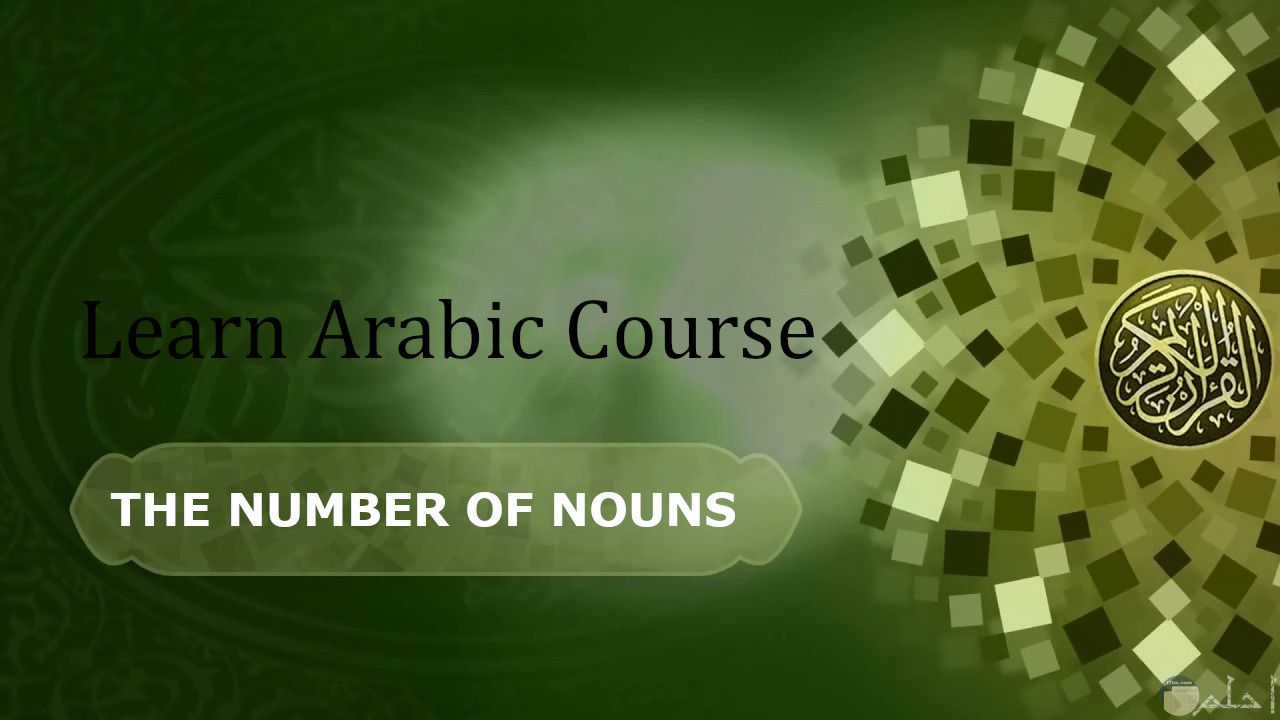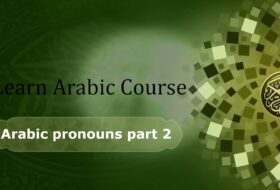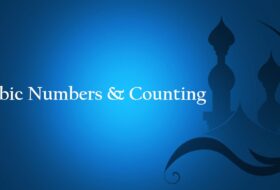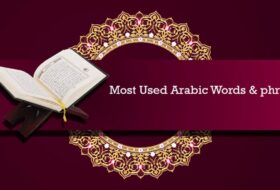THE NUMBER OF NOUNS عدد ألاسماء
Unlike English, Arabic has three numbers: singular is termed wahid (واحد) or Mufrad (مفرد) the dual or two of anything is termed tathniyah (تثنية) and more than two is plural called Jam (جمع).
1-Wahid (واحد) or Mufrad (مفرد)
Examples: (الكتب) (القلم) (الساعة) (رجل) (يد) (بيت) (المسلم) (الكافر).
2-Tathniyah (تثنية)
The dual form ends in aani:(ان) Like (القلمان) (الكتابان) (رجلان) (طالبان) (أمراتان) (المسلمان) (الكافران).
3- The Plurals of Nouns and Adjectives:
In English, adjectives have no plural form. We say “good man” and “good men”. But in Arabic even adjectives have dual and plural form.
In English there are two types of plural :
- Sound Plural: In sound plural the word retains its original form, e.g. book – books, pen – pens.
- Broken Plural: The original form of the word is changed to a great extent, e.g. Man – men, woman – women.
In Arabic too, we have these two kinds of plural forms; Sound and Broken.
Sound Plural in Arabic ( الجمع السالم )
The masculine plural of nouns are formed by adding (ون) to the singular form (مسلم – مسلمون) (مومن – مومنون) ( سارق – سارقون) (جاهل – جاهلون)
The feminine plural of nouns which end in (ة) are formed by changing (ة) to (ات), As (مسلمة – مسلمات) (كافرة – كافرات) (ساعة – ساعات) (مدرسة – مدراسات) (كلمة – كلمات)
The plural of nouns which do not end in (ة) are also formed by adding (ات) to singular as (مريم – مريمات) (سماء – سموات).
The Broken Plural (جمع التكسير )
Unlike English, the broken plural is very widely used in Arabic. It is formed from the singular by the addition or elision of consonants, As ( رجل – رجال) (رسول – رسل)
There are many patterns of the broken plural. The following are commonly used patterns:














